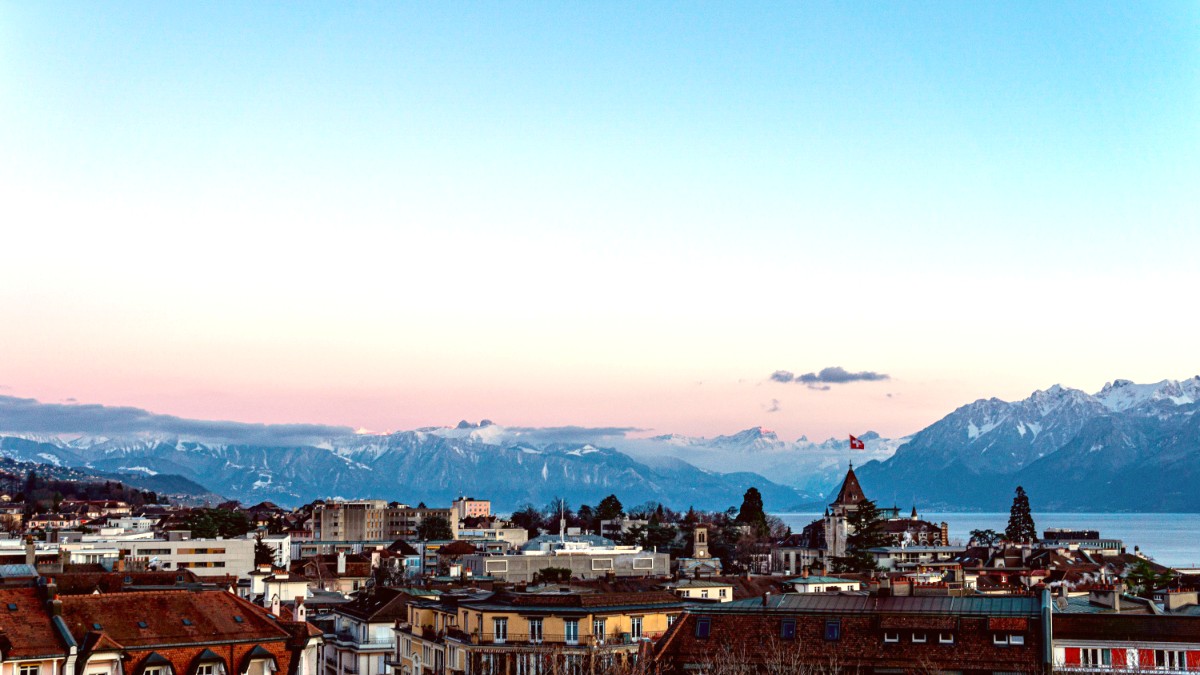
Lake Geneva Region, Switzerland
Swiss cuisine draws from its German, French, and Italian neighbors. As Lausanne sits in the Vaud canton, French influence is strong.
This means a focus on rich, hearty dishes, a generous use of dairy products (especially cheese), and a proud tradition of winemaking. Historically, food relied on local produce, cheese, and meats.
Cheese (Gruyère, Emmental), Potatoes (Röstis), Meat (Beef, pork, Saucisson Vaudois), Bread, Lake Fish (Perch).
Generally rich, comforting, and savory. Less emphasis on spicy flavors, more on natural ingredients and classic preparations.
Breakfast typically lighter. Lunch often a quick bite or substantial "plat du jour." Dinner a main, relaxed meal.
Melted cheese in a communal pot. Dip bread cubes into the hot, gooey cheese.
A quintessential Swiss experience, especially in cooler months.
Melted Raclette cheese scraped onto boiled potatoes, served with gherkins and pickled onions.
Often a social meal where each person melts their own cheese.
Deep-fried cheese fritters, typically made with Gruyère cheese, from the Vaud region.
Crispy exterior with a rich, melted cheese interior.
Vaud wines (Chasselas), Swiss beers, Rivella (milk whey soft drink), high-quality mineral water.
Meringues with Gruyère Double Cream, world-renowned Swiss Chocolate, Birchermüesli (healthy breakfast/snack).
Lausanne boasts several Michelin-starred restaurants, often within luxury hotels like Beau-Rivage Palace and Lausanne Palace.
An abundance of mid-range restaurants throughout the city, offering traditional Swiss, French, Italian, and international options.
Supermarkets (Coop, Migros) offer cost-effective ready-to-eat meals, sandwiches, salads, and hot food counters.
Vegetarian options increasingly common. Vegan options are growing, though they might require more searching.
Lausanne is more accommodating than smaller towns.
Awareness of food allergies is growing. Advised to learn phrases like "sans gluten" or "allergie à..."
Inform staff about dietary needs when ordering; most restaurants are accommodating.
Excellent Italian, French, Asian (Chinese, Japanese, Thai, Vietnamese), Indian, Middle Eastern options.
Held on Tuesdays and Saturdays in the Old Town for fresh produce and local delights.
Gare CFF a hub for quick meals and snacks.
Coop and Migros offer ready-to-eat selections.
Formal initiatives less common. Engaging with locals at markets or smaller eateries delivers a sense of community.
Focus on high-quality service.
French is the official language. Short-term language courses may be available.
Even a few words appreciated!
Buvettes: Small, informal eateries in parks or along the lake, serving simple, affordable meals.
Guinguettes: Lakeside cafes and restaurants that pop up during summer months, offering a relaxed atmosphere.
Awareness of gluten-free needs is growing.
Always inform staff about specific allergies like nuts, dairy, or seafood.
Vegetarian dishes are common. Vegan choices are increasing, especially in urban areas.
Clearly communicate your dietary needs to the server. Most Swiss restaurants are accommodating when informed.
A few French phrases are beneficial.
Online forums, dedicated websites, and apps assist in finding places.
Many establishments now feature at least one or two vegetarian dishes on their menu.
Supermarkets like Coop and Migros stock a variety of dietary products.
If uncertain about ingredients, politely inquire with the serving staff for clarification.
Lausanne's dining scene continues to evolve. New establishments open regularly.